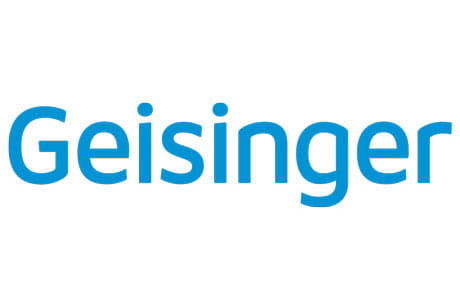Stroke risk remains high after transient ischemic attack, Geisinger researchers find
Rate of stroke after TIA has decreased slightly over two decades
DANVILLE, Pa. – A Geisinger analysis of research published over the past 50 years confirms an elevated risk of stroke following a transient ischemic attack (TIA), also known as a mini-stroke.
A TIA is a temporary period of stroke-like symptoms that usually lasts a few minutes and doesn't cause permanent damage. Management of TIA has gained significant attention over the past 25 years after several studies indicated an increased risk of subsequent stroke.
The research team, which included physicians and scientists from Geisinger’s Neuroscience Institute, conducted a systematic review and meta-analysis of studies on the risk of stroke after TIA published between 1971 and 2019. The analysis, published in JAMA Neurology, revealed the risk of post-TIA ischemic stroke as 2.4% within two days, 3.8% within seven days, 4.1% within 30 days, and 4.7% within 90 days.
“Patients recruited for studies prior to 1999 had a significantly higher rate of stroke after TIA than those in more recent studies, showing a slight decrease in overall post-TIA strokes after 1999. However, the rate of post-TIA stroke has not changed since 1999 despite advances in stroke care,” said Ramin Zand, M.D., a vascular neurologist and clinician-scientist at Geisinger and senior author of the study. “This finding shows that even though there have been many advances in the field of stroke, the risk of recurrence among TIA patients is still high.”
The Geisinger team is using artificial intelligence (AI) tools to help bridge this care gap and provide more personalized care to patients who may be at risk for stroke.
“We can utilize the rich longitudinal data from Geisinger’s electronic health records and our advances in AI to build decision support systems to assist physicians in extracting the most informative insights from a patient’s history and provide more personalized care to our patients,” said Vida Abedi, Ph.D., a scientist in the department of molecular and functional genomics at Geisinger and a co-author of the study.
To recognize the signs of a stroke, people should remember the acronym BE FAST:
- Balance: Does the person show signs of sudden loss of balance?
- Eyes: Are they experiencing sudden vision trouble like blurred, double or loss of vision?
- Face: Does the person’s face look uneven when they’re asked to smile?
- Arms: Is there weakness in one or both arms?
- Speech: Does the person have trouble speaking or seem confused?
- Time: Call 9-1-1 if you notice any of these signs or symptoms.
Geisinger’s nationally recognized Acute Stroke Program includes 24/7 stroke care at all of our hospitals, two Comprehensive Stroke Centers designated by The Joint Commission and the American Heart Association at Geisinger Medical Center in Danville and Geisinger Wyoming Valley Medical Center in Wilkes-Barre, Primary Stroke Center hospitals, and research-proven care that helps people recover from stroke with fewer disabilities. To learn more, visit geisinger.org/stroke.
About Geisinger
Geisinger is among the nation’s leading providers of value-based care, serving 1.2 million people in urban and rural communities across Pennsylvania. Founded in 1915 by philanthropist Abigail Geisinger, the non-profit system generates $10 billion in annual revenues across 134 care sites - including 10 hospital campuses, and Geisinger Health Plan, with 600,000 members in commercial and government plans. The Geisinger College of Health Sciences educates more than 5,000 medical professionals annually and conducts more than 1,400 clinical research studies. With 26,000 employees, including 1,600 employed physicians, Geisinger is among Pennsylvania’s largest employers with an estimated economic impact of $14 billion to the state’s economy. On March 31, 2024, Geisinger became the first member of Risant Health, a new nonprofit charitable organization created to expand and accelerate value-based care across the country. Learn more at geisinger.org or connect with us on Facebook, Instagram, LinkedIn and X.

For media inquiries:
Ashley Andyshak Hayes
Marketing Strategist
Marketing & Communications
570-271-8081
arandyshakhayes@geisinger.edu
